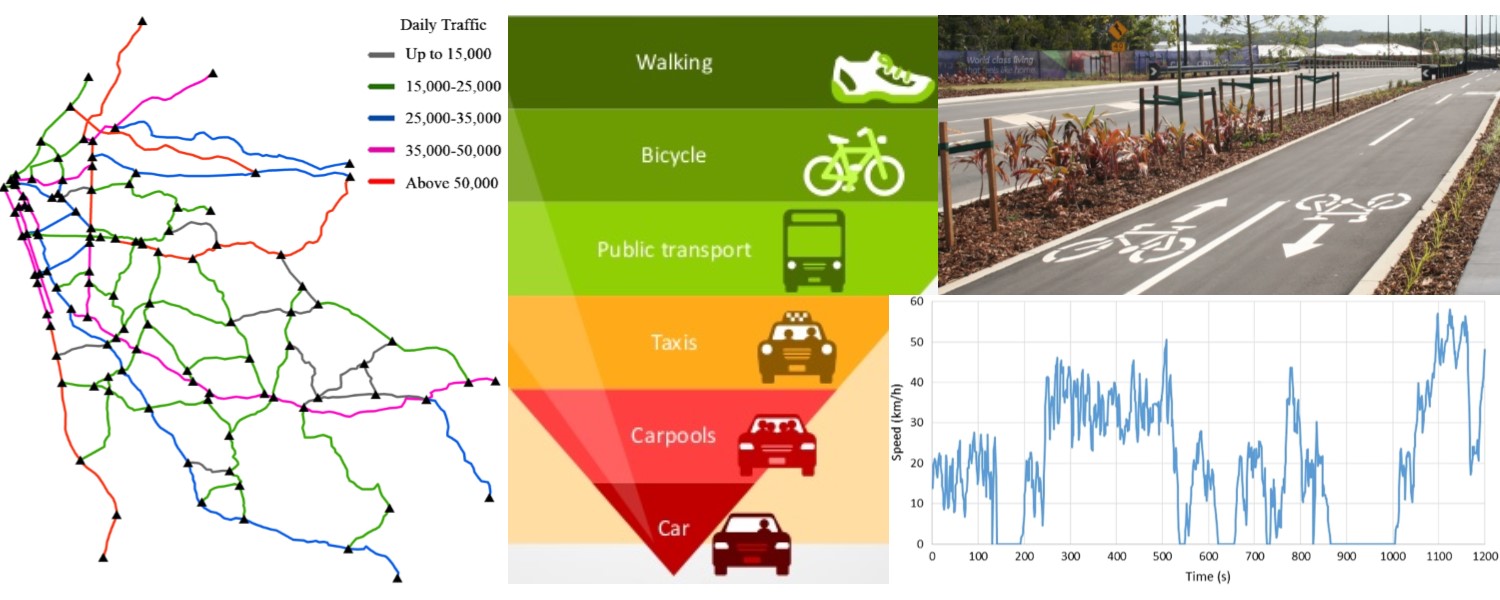
Sustainability is considered as equity and harmony extended into the future where we need to strive for harmonious co-evolution of environmental, economic and socio-cultural goals. A Sustainable Transport System is one that is accessible, safe, environmental-friendly and affordable and that does not endanger public health or eco-systems and meet needs for access consistent with use of renewable resources at below their rates of regeneration and use of non-renewable resources at below the rates of renewable substitutes. Research in to this area is a timely and important.
PROJECTS
- Development of a Representative Driving Cycle for Colombo, Sustainable Energy Authority, 2014-2015.
PUBLICATIONS
- T. Thilakshan and J.M.S.J. Bandara (2019). Identification of relevant sustainable transportation links to sustainable development goals (SDGs) in the national context. 113th Annual Sessions of IESL pp. 341 - 348.
- S.P. Gajanayake, J.M.S.J. Bandara, A.G.T. Sugathapala (2019). Analysing the characteristics of driving patterns affecting the fuel consumption of a Light Duty Vehicle, 113th Annual Sessions of IESL, pp.395 - 400.
- Ranawaka, S., Pasindu, H.R. (2019). Evaluation of emission level increment in urban and sub urban highway work zones - A case study. 15th World Conference on Transport Research, Mumbai.
- U. Galgamuwa, H.L.K. Perera and J.M.S.J. Bandara (2016). Development of a Driving Cycle for Colombo, Sri Lanka: An Economical Approach for Developing Countries, Journal of Advanced Transportation, Vol 50, Issue 7 pp 1520-1530, Nov.
- Uditha Galgamuwa, H.L.K. Perera, J.M.S.J. Bandara (2016). A Representative Driving Cycle for the Southern Expressway Compared to Existing Driving Cycles, Transportation in Developing Economies, 2:22.
